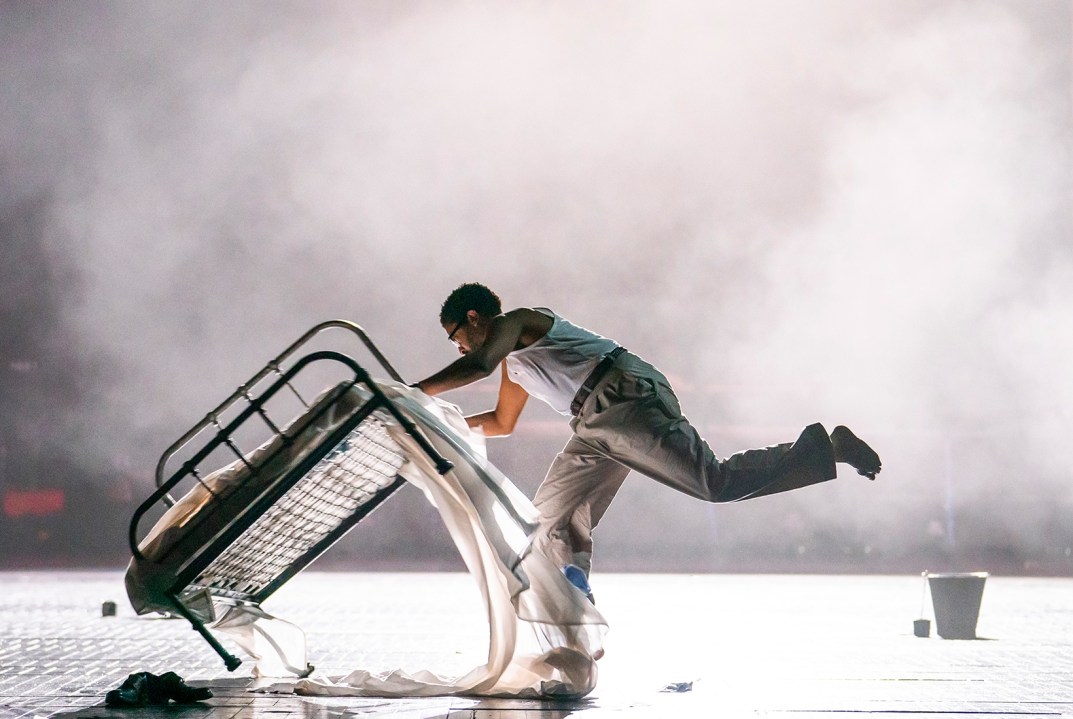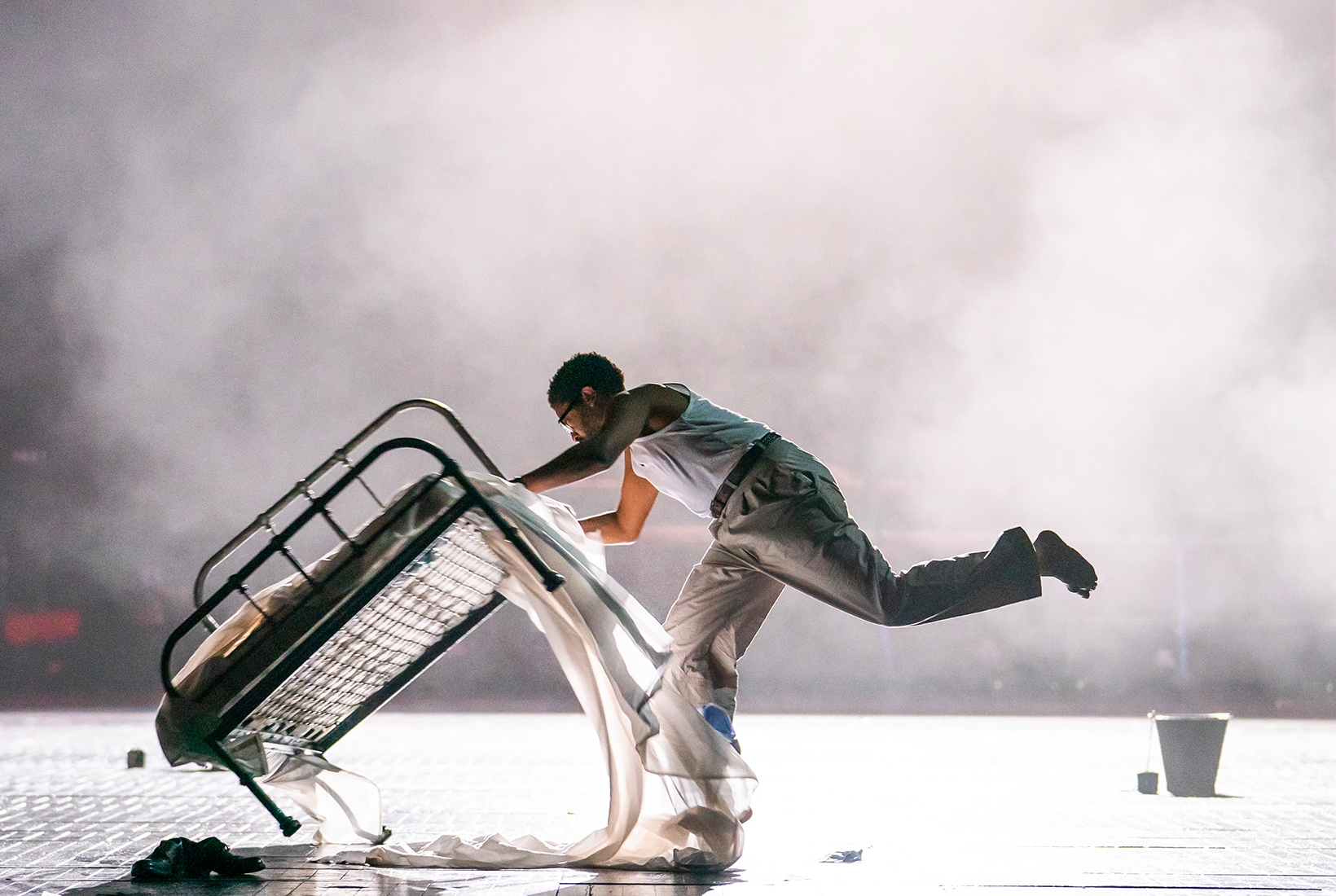It’s quite a title sequence. Puccini swells on the soundtrack and words flash before your eyes. ‘Ecstatic!’ ‘Spellbound!’ ‘Passionate!’ ‘Dazzled!’ Champagne fizzes, ballerinas pirouette; for some reason Bryn Terfel hovers in the roof of the Floral Hall. The Royal Opera House is back in the game, bringing the uplift of live music-drama to an opera-starved Britain, and if you’re watching it online, the only remaining question is whether the offering on stage can possibly live up to the energy, colour and sheer affirmation of the Royal Opera’s on-screen intro.
Don’t be silly. What we get is New Dark Age — a double bill that takes its name from its second half, the latest creation of director Katie Mitchell. Let that title sink in for moment. Once, the term ‘Dark Age’ implied centuries of slaughter, pillage and civilisational collapse. Now — well, one treads carefully, because 2020 has not been anyone’s idea of an unalloyed good time. But as a rule of thumb, if you can still stream live contemporary opera into your home at £16 a pop, you’re probably not living through the Sack of Rome.
Occasionally a tiny paper boat glides by: creativity, innocence and escape in one fragile symbol
Either way, the title did no favours at all to the first half of the evening: The Knife of Dawn, an opera by Hannah Kendall to a libretto by Tessa McWatt about the Guyanese poet and anti-colonial activist Martin Carter. Carter, sung and acted with uncompromising intensity by Peter Braithwaite, lies in his prison cell, on hunger strike. A solitary harp glints its way through harsh, sporadic ambient sounds as Kendall sketches the bones of an atmosphere: the slowed-down sound of time ticking, water dripping; light catching on the barest knife-edge of hope.
An inner dark age, perhaps; but Carter’s struggle is approaching its resolution, one way or another, and the power of The Knife of Dawn lies in its refusal to pretend that the coming dawn will be any easier than the night.








Comments
Join the debate for just £1 a month
Be part of the conversation with other Spectator readers by getting your first three months for £3.
UNLOCK ACCESS Just £1 a monthAlready a subscriber? Log in